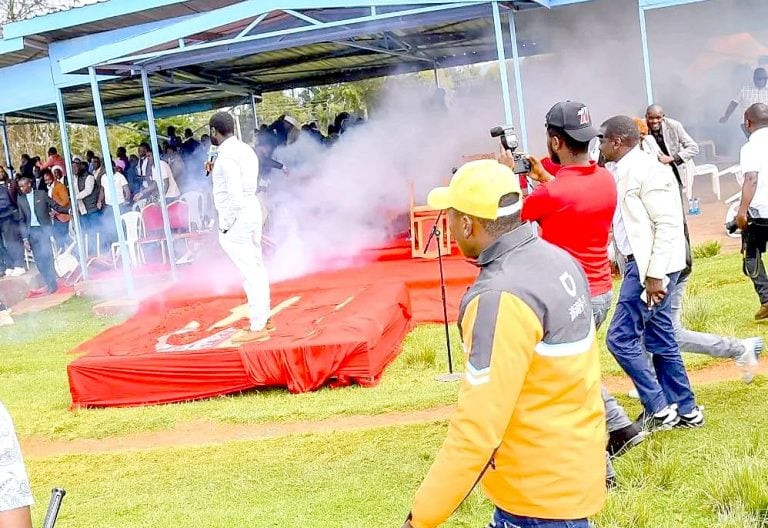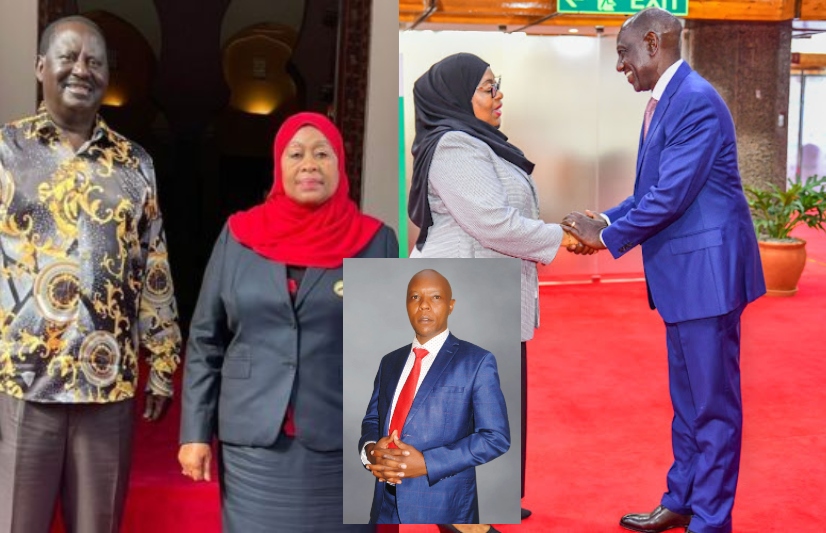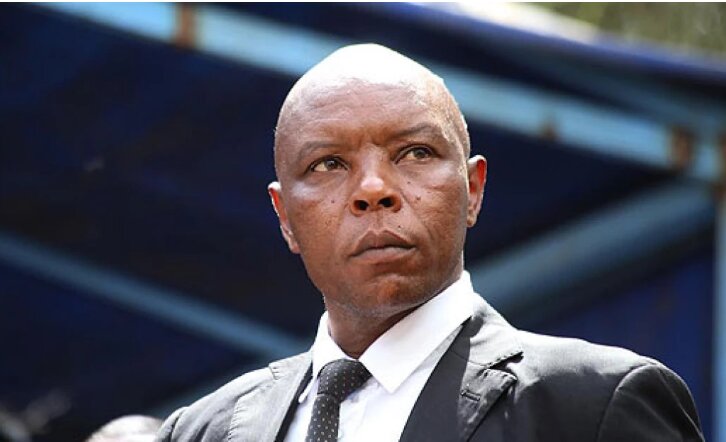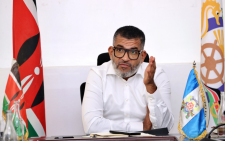Whispered return of Mungiki puts Central region on edge

Known for previously subjecting communities, especially in the Mt Kenya region, to economic and inhumane violations, Mungiki’s whispered resurgence is causing unease.
Despite its desperado status, members of the sect who once wielded considerable influence in the region, are reportedly back – this time to control politics.
Recently, members of the group have been accused of disrupting organised public events in a new bid to calm the restive region that is opposed to President William Ruto’s government.
Two weeks ago, the spouse of former Deputy President Rigathi Gachagua, Dorcas, had to abandon a prayer meeting in Nyeri after Maina Njenga, the former leader of the group, stormed the venue.
‘Uncivilised behaviour’
Dorcas was whisked away from the meeting at Kamukunji Stadium as Njenga’s convoy arrived in what some politicians have since condemned as uncivilised behaviour.
“I would like to ask the young men who are being misused in that route to know that they are the parents of today and they are the ones we are fighting for. Disrupting events means they are yet to realise our course,” said Naivasha MP Jayne Kihara recently.
On Friday, Interior Cabinet Secretary Kipchumba Murkomen put criminal gangs on notice, saying the government will spare no efforts to neutralise them.
The government, he warned, had taken note of the regrouping of criminal outfits, some of which he claimed were sponsored by politicians.
“I’m sounding a warning to all criminal gangs out there to either disband or face the full force of the law,” Murkomen said.
The gangs, he said, undermine peace and lead youth down the path of criminality, adding that leaders who found misusing the youth to form gangs to achieve a political end will be prosecuted regardless of their political affiliation or influence.
Murkomen said he had instructed Inspector General of Police Douglas Kanja to work tirelessly to ensure the gangs were tracked down and dismantled.
Yesterday, Kanja said he had moved to implement the CS’s directive by issuing firm instructions to his officers on the ground.
“All criminal groups will be dealt with according to the law. They will not be allowed anywhere in the country,” Kanja warned.
The remarks from the CS and Kanja came just a day after the National Cohesion and Integration Commission (NCIC) warned about a resurgent of outlawed criminal gangs.
NCIC had disclosed that it was conducting an in-depth study of organised criminal gangs and their threat to the fabric of the nation.
“These criminal organisations have established a strong presence in both urban and peri-urban areas, where their influence and operations have disrupted local communities, making everyday life dangerous for many Kenyans,” the commission noted.
Two years ago, security agents were directed to deal ruthlessly with Mungiki adherents and those recruiting young people into the dreaded group.
Intelligence reports identified Nyeri County as one of the areas where Mungiki resurgence had been noted and the government warned that the gang will be met with the full force of the law.
Despite the warning, there are no records of any arrests or prosecution of suspected gang members, and instead the group, hitherto operating discreetly, has now started mobilising themselves as they accompany politicians to events.
Cheerleaders and bodyguards
The gang – known for killings, female circumcision, and defilement – also claims to be in a position to provide security for a fee.
With leaders, including Gachagua, having raised concerns about Mungiki’s return, we sought to investigate the claims in high-traffic areas previously known to be their havens.
Gachagua has consistently accused President William Ruto of f using Njenga, the former Mungiki leader, and remnants of the group to intimidate Mt Kenya residents.
In early December, Gachagua suggested that Mukurweini MP John Kaguchia petition the International Criminal Court to investigate Mungiki’s activities.
That month, Njenga publicly pledged his support for President Ruto, urging residents of Mt Kenya to back the government. He also voiced support for MPs facing opposition due to their alignment with Ruto’s administration.
“We want to let you know that you cannot force people to like you. Enlisting this group will not help,” Gachagua said then.
While they still operate as touts, quarry workers and hawkers, our investigations pointed to the possibility that group members has stopped extorting money from the public.
Others, especially jobless ones, are being mobilised to be cheerleaders and bodyguards during major rallies in Mt Kenya, colouring events through cheers and protecting their employers.
“They are now wearing a new face, but their ghost of a violent past is still memorable. While I appreciate the transformation, it would be my wish the criminal grouping be stopped from resurfacing as its is not known what they might become,” said a resident of Thika town, who sought anonymity.
Group’s origins
The politico-religious sect’s origins are said to have been inspired by the 1950s Mau Mau rebellion against the British colonial administration.
It initially emerged as a Kikuyu youth movement, defending dispossessed women, migrants and landless youth.
The grouping would later stand against the autocratic and corrupt government of the late President Daniel arap Moi before he reportedly co-opted it and used it in election politics.
The initially focused, sober and friendly members of the sect would later turn into something different – high-ranking politicians began using them to achieve results when needed.
In the elections held between 1992 until 2007, politicians would mobilise them to support their campaigns, where would offer them security during rallies and cheer them.
In its earlier years, the organisation stepped up its violence using terror, murders of defectors, killings of people who refused to pay protection money, and brutal warfare against other sects.
Its members used to extort money from households and shops and solicit bribes, using threats to make inroads into the informal commuter transport industry.
But for many residents of the central Kenya, mentioning Mungiki evokes bitter memories of the mayhem committed by the criminal outfit.
Previously, the cult-like group thrived on extortion, violence and threats, destabilising families and communities.
Among many others, one of the horrendous memories of the sect is the butchering of nearly 30 people in Nyeri in April 2009.














